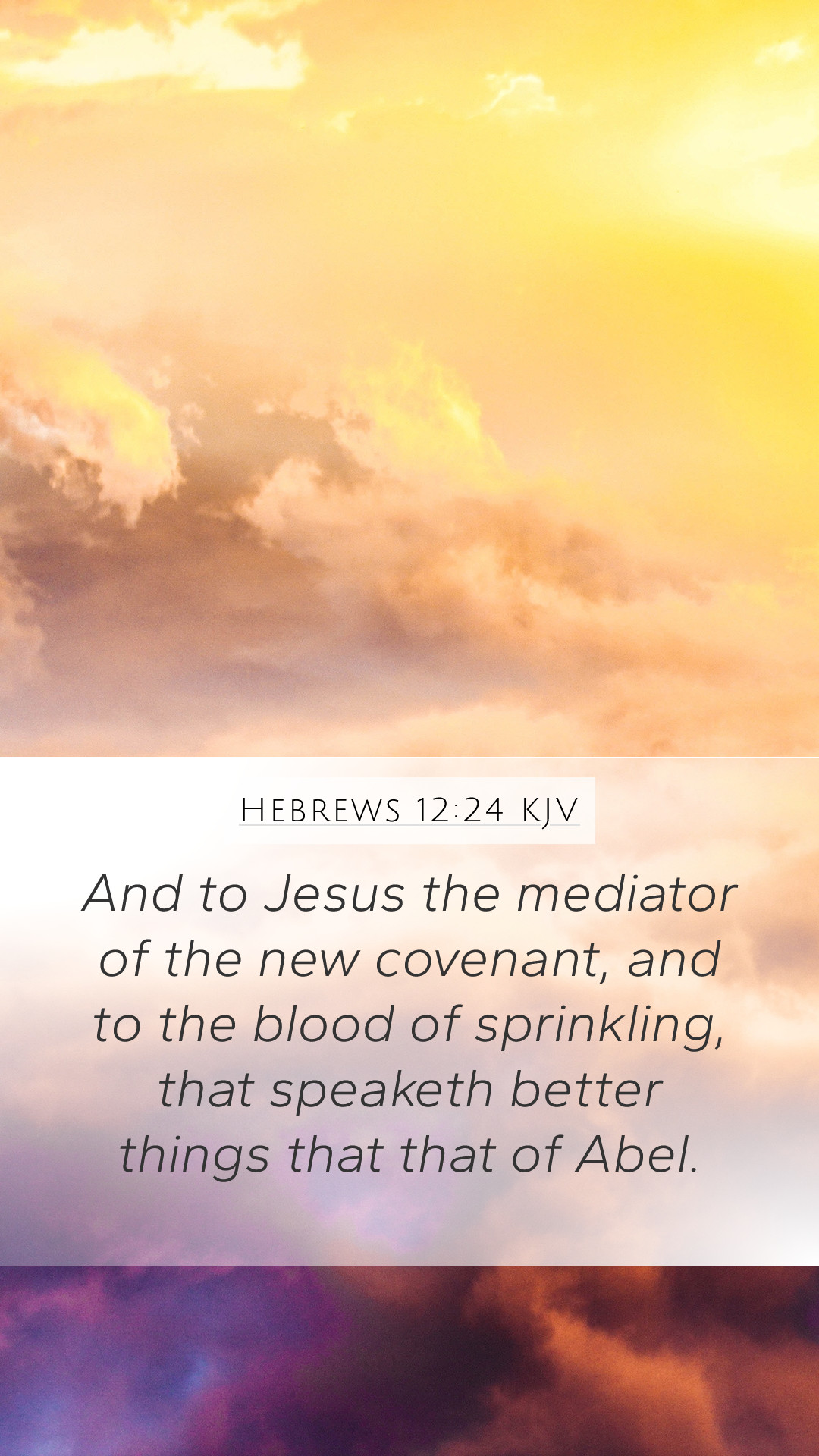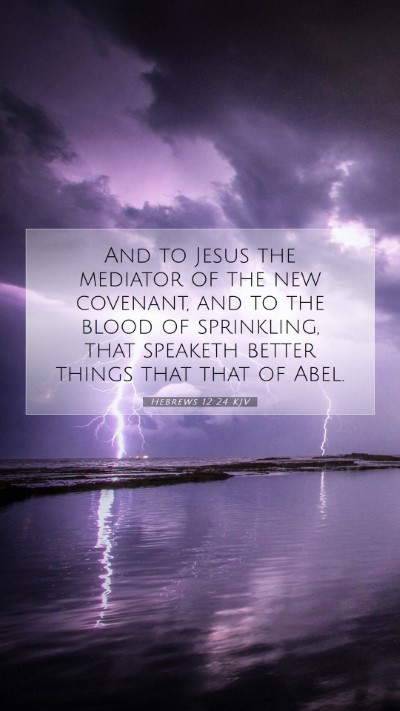Understanding Hebrews 12:24
Verse: Hebrews 12:24 - "And to Jesus the mediator of the new covenant, and to the blood of sprinkling that speaks better things than that of Abel."
This verse encapsulates profound theological insights regarding the mediatorial role of Jesus and the significance of His sacrificial blood. Below, we explore the meanings, interpretations, and explanations associated with this passage, utilizing various public domain commentaries.
General Overview
Hebrews 12:24 draws a contrast between the new covenant established through Jesus Christ and the old covenant typified by Abel's sacrifice. The progression through these covenants showcases God's redemptive plan and emphasizes the superiority of Christ's mediation.
Primary Themes
- The Mediator: Jesus is identified as the mediator of the new covenant, fulfilling the role that priests once held under the old covenant.
- Blood of Sprinkling: The imagery of blood is significant in this context, symbolizing the atonement and the new relationship believers have with God.
- Better Things: The mention of “better things” signifies the greater promises and blessings that come through the new covenant compared to the old.
Commentary Insights
Matthew Henry's Commentary
Matthew Henry elaborates that this verse places Jesus as the pivotal figure in the new covenant, contrasting His sacrifice with Abel’s. He emphasizes that while Abel's offering was commendable, it was finite and could not provide lasting redemption. In contrast, Jesus's blood avails for the eternal forgiveness of sins and establishes a transformative relationship with God.
Albert Barnes' Notes on the Bible
Albert Barnes notes the significance of the term "mediator." He highlights that His mediation is not just a formality but rather an active representation of believers before God. The author of Hebrews contrasts this with the Levitical priesthood, which couldn’t offer perfect mediation. Barnes underscores the idea that Christ’s blood is “better” because it effects a complete atonement and is the foundation of the new covenant.
Adam Clarke's Commentary
Adam Clarke focuses on the theological implications of Jesus’s blood as it ‘speaks’ better things than Abel’s. He suggests that the blood of Christ speaks of grace, mercy, and redemption, offering blessings beyond what was attainable under the law. Clarke elaborates that the blood of Abel cried out for justice, while Christ's blood proclaims forgiveness and reconciliation.
Significance in Biblical Context
In the context of the epistle, Hebrews unfolds themes of faith, endurance, and the superior covenant brought by Christ. Reflecting on Hebrews 12:24, one must consider how these concepts are pivotal in understanding the nature of our relationship with God under the new covenant.
Related Cross References
- 1 Timothy 2:5 - Discusses Jesus as the only mediator between God and man.
- Hebrews 9:22 - Addresses the necessity of blood for the forgiveness of sins.
- John 14:6 - States that Jesus is the way, the truth, and the life.
Application for Daily Life
Understanding Hebrews 12:24 allows for a deeper recognition of the grace afforded through Christ’s sacrifice. This comprehension can practically transform a believer's life:
- Embrace New Identity: Believers are invited to accept the new identity that comes from being part of the new covenant.
- Access to God: The mediation of Christ allows for direct access to God, eliminating barriers that existed in the old covenant.
- Gratitude and Worship: Recognizing the value of Christ's blood sets a foundation for sincere worship and gratitude, knowing the depth of sacrifice made for our redemption.
Conclusion
Hebrews 12:24 is a rich verse that provides layers of meaning and profound insights into the significance of Jesus’ role as mediator. By exploring this passage with the help of public domain commentaries, individuals can achieve a well-rounded understanding and appreciation of its theological depth.
Further Bible Study Resources
For those interested in deepening their Bible study understanding, consider utilizing the following:
- Bible study groups for communal learning
- Online Bible study courses that offer structured teachings
- Bible study materials that provide historical context and commentary


